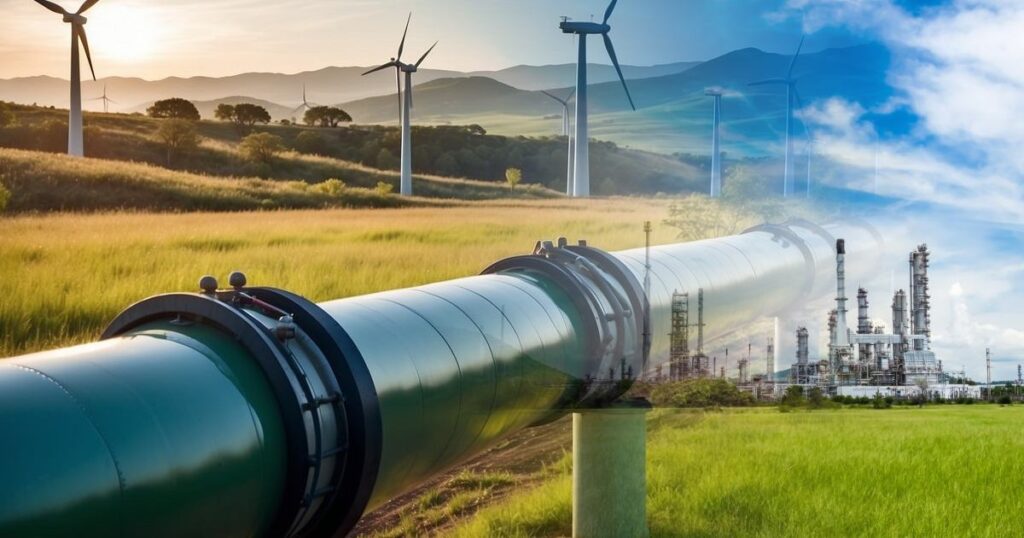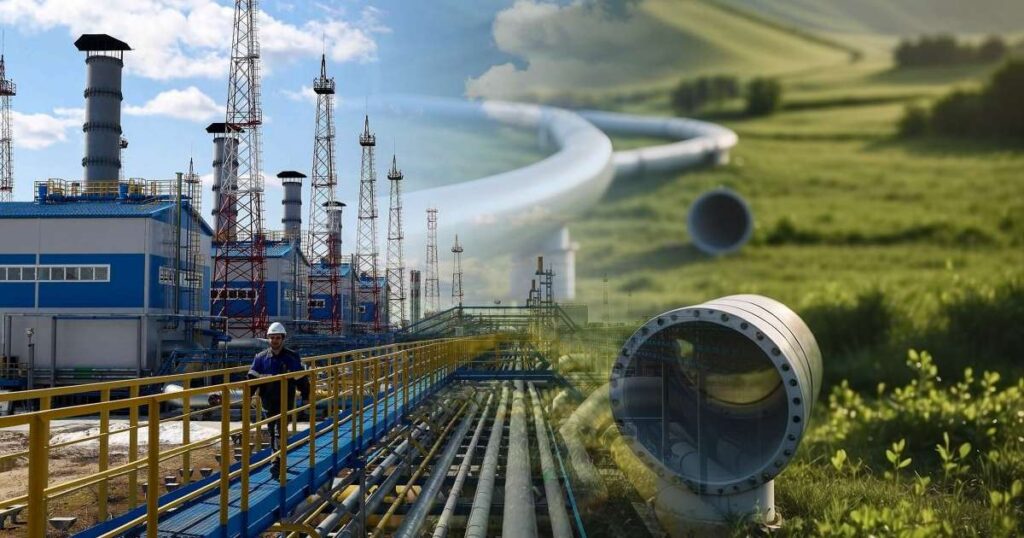Sustainability in the industrial gas supply sector is a transformative movement incorporating environmental stewardship, social responsibility, and economic viability. As you explore this topic, it’s essential to understand that the gas supply industry is at a critical juncture where adopting sustainable practices is preferred and necessary for long-term viability. As the world’s focus shifts towards a sustainable energy future, the gas supply industry faces heightened regulatory pressures alongside increasing demands from consumers and investors for environmentally conscious operations.
This industry, such as Ramdon, is developing and implementing strategic approaches as it transitions toward sustainability. These approaches range from reducing greenhouse gas emissions through technological innovations to adhering to stricter environmental regulations and employing more transparent reporting of sustainability metrics. Your role in this shift toward a sustainable future may involve staying informed about sustainable fuels, understanding the complexities of the global gas supply chain, and recognising the contributions of different regions, such as Europe, Asia, and America, in fostering a more sustainable energy landscape.
Key Takeaways
- The gas supply industry is integrating sustainability to address environmental, social, and economic challenges.
- Innovative strategies and adherence to regulations are vital for the industry’s sustainable evolution.
- Global collaboration and knowledge sharing are crucial in achieving a sustainable energy future.
Sustainable Development in the Gas Sector

Your understanding of sustainable development in the gas sector is pivotal for navigating the current industrial landscape. This section delves into how the oil and gas sector recognises and adheres to sustainability while considering economic, social, and environmental factors.
Assessing Sustainability Risks and Opportunities
To effectively manage sustainability risks, you need a robust risk assessment framework. Environmental impact, such as emissions and climate change, poses a significant sustainability risk to the oil and gas sector. You must also account for the social implications of your operations, including labour practices and community relations. Economically, the volatility of oil prices and the shift towards renewable energy sources like hydrogen and biofuels are shaping the industry’s future.
Within this framework, your decision-making processes must prioritise resilience. You can leverage technology to minimise risks and optimise growth. For example, incorporating LNG (liquefied natural gas) contributes to a lower environmental footprint than other fossil fuels. Also, engage with the Triple Bottom Line approach to ensure your strategies are balanced and thorough.
Barriers you might face include regulatory complexities, subsidies for fossil fuels, or resistance to change within corporate structures. Despite these challenges, focusing on sustainability in your decision-making process strengthens your company’s competitiveness and paves the way for long-term viability.
Sustainable Supply Chain Management
Your supply chain is critical in facilitating the shift towards more sustainable practices. Begin with industrial gas supplier selection; prioritise partners who value green procurement and share your commitment to corporate social responsibility. Implementing a resilient supply chain that can withstand various disruptions is essential for maintaining the integrity of your operations.
To continuously improve, you should monitor Key Performance Indicators (KPIs) related to sustainability dimensions. Standards, such as those established by the GRI (Global Reporting Initiative), can help gauge the effectiveness of sustainable supply chain management. Corporate social responsibility should encompass every aspect of the supply chain, from production to distribution, consistently focusing on minimising the environmental impact and enhancing social welfare.
The adoption of technology and innovation plays an instrumental role. For instance, biofuels can present alternative logistical and supply chain solutions, while diversification into new energy sources can reduce dependence on traditional oil and gas. Your commitment to sustainable practices may involve complexity and corruption challenges; however, addressing these issues head-on strengthens public trust and business resilience.
By incorporating these sustainable approaches into your business model, you solidify your reputation in the industry and contribute to a sustainable future in the industrial gas supply.
Strategic Approaches to Enhancing Gas Supply

Sustainability and enhanced efficiency across the oil and gas supply chain are paramount in today’s industrial landscape. Your strategic focus on integrating innovation and committing to the transition towards cleaner energy sources ensures energy security and positions you to adapt to the rapidly growing global LNG market.
Innovation and Technology in Gas Supply
You must recognise that technological advancements are critical in optimising the natural gas delivery system. Implementing multi-criteria models can create an annual delivery plan within a closed-loop supply framework. Deterministic models and stochastic approaches to the liquefaction process contribute to system robustness. By employing innovation, your LNG supply chain can experience significant improvements in transportation efficiency, leading to a sustainable and resilient energy future.
Key considerations include:
- Integration of state-of-the-art technology that enhances the reliability and efficiency of LNG conversion and distribution.
- Optimisation across the supply chain through mathematical formulations that streamline operations and mitigate risks.
- Develop robust and resilient systems that withstand disruptions, thus protecting your supply chain’s integrity.
The Role of Natural Gas in Energy Transition
Natural gas, often considered cleaner than traditional hydrocarbon sources like oil and coal, is crucial in your efforts to realise a sustainable energy future. It serves as a bridge in the transition away from high-emission energy sources. An integrated approach to managing the LNG supply chain, from exploration to end-user delivery, emphasises the importance of sustainability and selects strategies that balance economic, environmental, and social goals.
Essential factors to address:
- Enhancement of energy security by diversifying the energy mix with higher proportions of natural gas.
- Resilience and risk assessment in the gas supply chain to identify and mitigate vulnerabilities.
- Embracing sustainable LNG supply chains that support the evolution towards a more sustainable, secure, and resilient energy ecosystem.
Focusing on these strategies supports the transition towards a cleaner and more secure energy landscape, reducing reliability on less sustainable hydrocarbon sources.
Frequently Asked Questions
In this section, you’ll find concise responses to common inquiries regarding sustainability in the industrial gas supply industry. These questions cover the methods, alignment with global goals, challenges, and future sustainability in the sector.
What are the key methods to enhance sustainability in the natural gas industry?
The natural gas industry focuses on reducing flaring, improving energy efficiency, and adopting carbon capture and storage technologies to enhance sustainability. Leak detection and repair programs are critical in minimising methane emissions, a potent greenhouse gas.
How does the gas supply sector align with Sustainable Development Goals?
The gas supply sector contributes to Sustainable Development Goals by providing cleaner energy options, fostering innovation in energy technology, and ensuring affordable and clean energy is accessible, thus supporting economic growth and reducing environmental impact.
What are the main sustainability challenges the oil and gas industry currently faces?
Current challenges include managing methane emissions, ensuring responsible water use, and protecting biodiversity in operations. The oil and gas industry must also transition to low-carbon energy sources while meeting global demand.
Why is it claimed that oil is not a sustainable resource, and how does this impact the gas industry?
Oil is finite, and its combustion contributes to CO2 emissions, leading to climate change. The increased pressure to shift towards lower-carbon natural gas and invest in renewable energy sources alongside gas offerings impacts the gas industry.
In what ways can natural gas be made more sustainable for future use?
Natural gas can be made more sustainable by integrating renewable energy sources, like solar and wind power, to reduce dependency on fossil fuels. Biogas and hydrogen also present cleaner alternatives for blending with natural gas in the supply chain.
How can sustainability principles be integrated into existing fuel resource management?
Sustainability principles can be integrated by adopting best practices that minimise environmental impact, using data and metrics to track and reduce carbon footprints, and investing in research for innovative solutions to reduce overall emissions in the supply chain.


